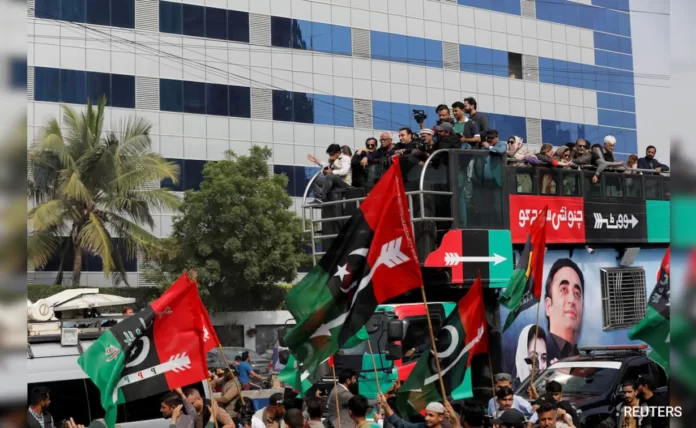As Pakistan gears up for its general elections scheduled for February 8, 2024, anticipation and political fervor run high across the nation. With citizens eagerly awaiting the opportunity to cast their votes, the electoral landscape is abuzz with campaign activities, candidate rallies, and strategic maneuvering by political parties.
A diverse range of candidates representing various political parties and independent platforms are vying for seats in the National Assembly and provincial assemblies. From seasoned politicians to newcomers, the election roster showcases a mix of experience and fresh perspectives, promising a dynamic electoral contest.
The voting process, a cornerstone of democratic participation, will unfold across polling stations nationwide. Citizens eligible to vote will exercise their democratic right by selecting their preferred candidates, marking ballots in accordance with their political affiliations and ideological leanings.
Key details regarding the electoral process, including polling station locations, voter registration status, and voting procedures, have been disseminated by the Election Commission of Pakistan (ECP) to ensure a smooth and transparent election day experience. Stringent measures are in place to uphold electoral integrity and safeguard against any potential irregularities.
Amidst the electoral buzz, concerns regarding security and logistical challenges have also surfaced. Security forces have been deployed across the country to maintain law and order and ensure the safety of voters, candidates, and election officials. Additionally, logistical arrangements such as ballot printing, transportation, and result tabulation are being closely monitored to prevent any disruptions to the electoral process.

The outcome of the Pakistan general elections will have far-reaching implications for the country’s political landscape, governance dynamics, and socio-economic trajectory. The elected representatives will be tasked with addressing pressing issues such as economic development, social welfare, national security, and foreign relations, shaping the future trajectory of the nation.
As Pakistanis prepare to participate in the democratic process and exercise their right to vote, the significance of active civic engagement and responsible citizenship cannot be overstated. Beyond political affiliations and partisan rhetoric, the democratic spirit of the elections underscores the collective aspirations of the Pakistani people for a brighter and more inclusive future.

As the electoral process unfolds, candidates are engaging in vigorous campaigning efforts, crisscrossing the country to connect with voters and articulate their visions for the nation’s future. Campaign rallies, public addresses, and media appearances serve as platforms for candidates to convey their policy agendas, address pressing issues, and garner support from diverse constituencies.
Simultaneously, political parties are strategizing and mobilizing their resources to maximize their electoral prospects. Coalitions are formed, alliances are forged, and electoral strategies are devised to secure victory in key constituencies and sway undecided voters.
Amidst the electoral fervor, concerns regarding electoral transparency, fairness, and integrity have been raised by opposition parties and civil society groups. Calls for free and fair elections, impartial oversight by electoral authorities, and the prevention of electoral malpractices resonate across the political spectrum.
The role of the media and civil society organizations in monitoring the electoral process and ensuring accountability remains crucial. Journalists, election observers, and civil society activists are actively monitoring pre-election activities, polling day proceedings, and post-election developments to uphold democratic norms and principles.
Beyond the electoral arena, the Pakistani electorate grapples with a myriad of socio-economic challenges, including poverty, unemployment, healthcare disparities, and education deficits. The outcome of the general elections will significantly impact the nation’s ability to address these pressing issues and foster inclusive growth and development.
As Pakistanis prepare to cast their ballots and shape the future of their nation, the democratic spirit of participation, civic engagement, and peaceful coexistence remains paramount. Regardless of political affiliations or ideological differences, the collective goal of strengthening democracy and advancing the common good unites citizens in their quest for a better tomorrow.

